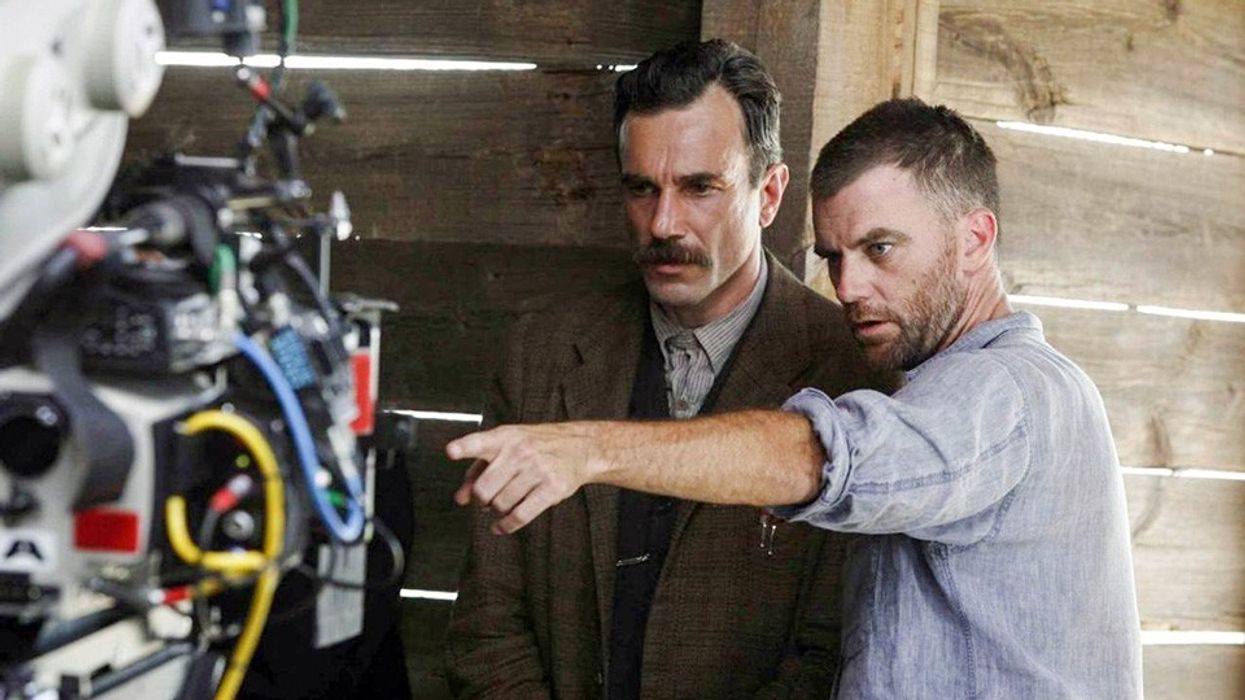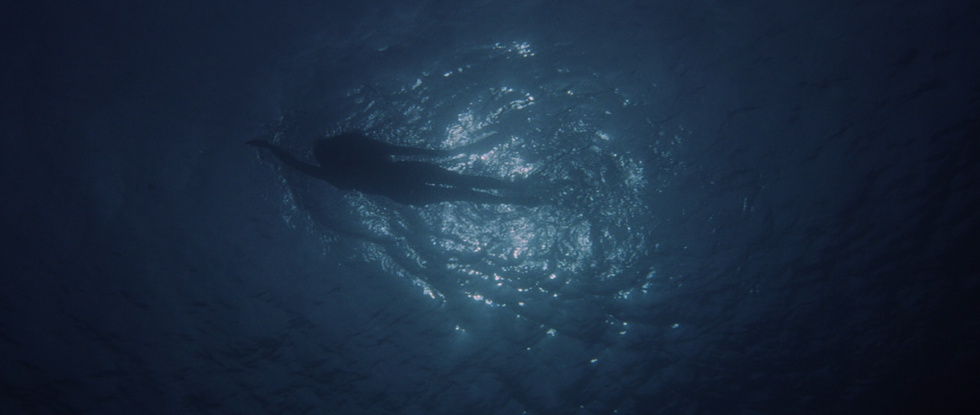Watch: Daniel Day-Lewis on 'There Will Be Blood' and the Birth of an Infamous American Character
In this hour-long talk with Paul Thomas Anderson and Charlie Rose, the actor discusses his process, Daniel Plainview's voice, and what he thinks of the oilman he made famous.

Ever since he announced his retirement from acting last month, movie fans have been contemplating a world without Daniel Day-Lewis. Though he only gave 20 performances in a career that lasted 28 years—his last performance, in the not-yet-released Phantom Thread, is another Paul Thomas Anderson collaboration—three of those performances won him Academy Awards, and the preparation that was required for each took him considerable time and toll.
For a movie star, Day-Lewis did scant press. He did, however, happily sit down with Charlie Rose several times, as he did here in 2007, to discuss There Will Be Blood along with Anderson. It is always fascinating to hear any artist describe their work, but it's especially the case for Day-Lewis, who approaches every role with the meticulous effort of Daniel Plainview: at the bottom of a mine, looking for gold in the dark.
Check out the interview and some highlights below.
1. The studios passed on There Will Be Blood
When Rose asks about any trouble raising money for the film, Day-Lewis responds, "The studios took one look at the film and said no," to which Anderson adds, "They definitely made us feel for a while that they wanted us to come over to dinner. But then they really let us know that they didn't want us to take care of their kids and we couldn't sleep over."
2. Daniel Plainview was written for Daniel Day-Lewis
Though Anderson wrote the script with Day-Lewis in mind, he didn't bank on casting him, because you never know who you're going to be able to get. Luckily, the script spoke to Day-Lewis right away, and he promptly set off on his usual method of preparation, which begins he says, with "many months in apparently listless rumination, out of which I hope something will emerge."
"The most fascinating part of the work is the work that you have absolutely no control over it whatsoever," continues Day-Lewis. "That's the part of the work that frays your nerves, because you don't know if the [character] will reveal itself to you in any way that you can absorb it or digest it."
3. PTA thinks Blood is sci-fi
Anderson says that, on a production level, he viewed There Will Be Blood as "kind of like science fiction." That's because the world they were depicting—one of improvised oil derricks spitting flames into the California sky—"was that kind of bizarre. And you try to draw it out and think, what the hell are they talking about? How were they doing this stuff?"
4. Day-Lewis on method acting
Day-Lewis is famous for his intense preparation, but for the actor, it's the only way to get inside of the character. One of the most iconic parts of the Plainview character is his inimitable (but much imitated) voice, and he explains its provenance to Rose, sharing the story of how Anderson had sent him rare recordings from the Dust Bowl era. (We've written previously about a vocal coach and his admiration for Day-Lewis' Plainview voice, which he viewed as "vintage Californian" and "the result of Lewis keeping his "tongue bunched up in the middle of his mouth—bracing against his molars...his cheeks very loose.")
"[Daniel Plainview] seemed an entirely honest examination of a life to me." —Daniel Day-Lewis
The intense physical labor involved in the world of the film helped Day-Lewis prepare for the role. The actor says that he sees Plainview as a quintessential character of the American West in that period, having the "experience of having to transform himself in the savagery of everyday life as a kind of bottom-feeder...and gradually sort of build his way towards this unimaginable wealth." To Day-Lewis, Plainview's character is shaped by how we first see him: down in a mine, in silence and agony. (Quentin Tarantino has some great insights on the opening section of the film.) "He's lived in silence in holes in the ground for maybe years," says Day-Lewis, "and he's now got to find a voice and a silver tongue that's got to convince people to turn their pockets inside out and invest in him as a man of irrefutable wisdom."
Asked about their relationship as characters, Day-Lewis sometimes refers to Plainview in the first person: "My fraudulence, as far as I'm concerned, would have a certain nobility to it," the actor said. "Whereas spiritual fraud— there is no excuse for that."
Rose comments that Day-Lewis is clearly is still attached to the character; he asks why, considering the unpleasantness of Plainview. "He makes me laugh," says Day-Lewis, elaborating that, for him, the character "seemed an entirely honest examination of a life to me. There seemed to be great truth in it, in the outrageous trajectory of that man's life. I can't explain it. And I still feel the same way about it."
Source: Charlie Rose

 'The Amazing Spider-Man' (2012)
'The Amazing Spider-Man' (2012) 'Jaws' (1975)
'Jaws' (1975)









